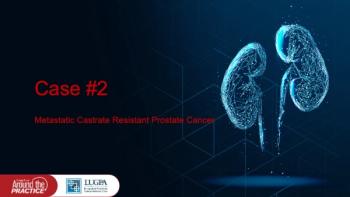
American Association for Cancer Research Annual Meeting (AACR)

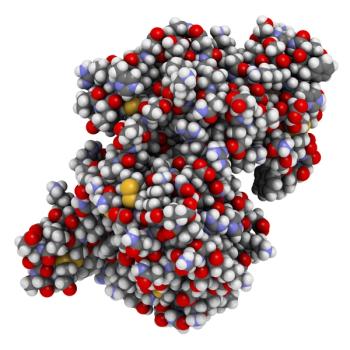
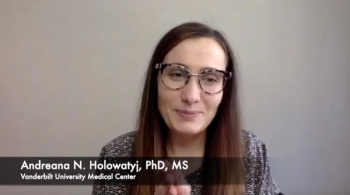
Holowatyj detailed the benefits of a conference like that of the American Association for Cancer Research Annual Meeting 2021, which presents opportunities for thought leaders to come together.

CancerNetwork® spoke with Sanju Sinha of the National Cancer Institute about the resulting data from his research into sex differences associated with using tumor mutational burden to predict response to PD-1 inhibition.
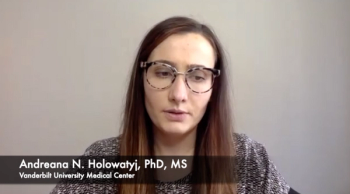
Holowatyj touched on the need to learn more about the biological factors contributing to disparities in early-onset colorectal cancer and the associated burden of the disease.

CancerNetwork® spoke with Francesco Ravera, MD, PhD, during the American Association for Cancer Research Annual Meeting 2021 to discuss how results of a study aimed at determining pathological complete response in patients with locally advanced breast cancer by cell-free DNA may spare certain patients from needing further biopsies.

CancerNetwork® spoke with Neelam and Sanju Sinha of the National Cancer Institute about their research into sex differences associated with using tumor mutational burden to predict response to PD-1 inhibition.

CancerNetwork® spoke with Francesco Ravera, MD, PhD, during the American Association for Cancer Research Annual Meeting 2021 to discuss results of a study aimed at determining pathological complete response in patients with locally advanced breast cancer by either cell-free DNA assessment or traditional MRI.
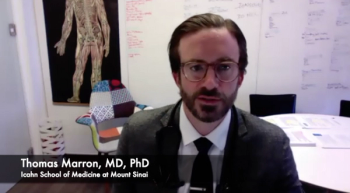
Marron spoke about the value that neoantigen vaccines can provide by studying T-cell responses and the characteristics of lymphoid response to antigens.

CancerNetwork® spoke with Francesco Ravera, MD, PhD, during the American Association for Cancer Research Annual Meeting 2021 to discuss a study that looked at cell-free DNA assessment compared with traditional MRI for determining pathological complete response in patients with locally advanced breast cancer.
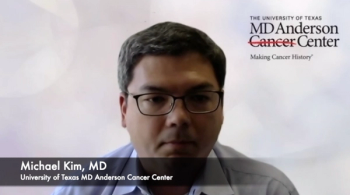
Kim discussed the need for further CREB inhibitor combinations to target collateral pathways and improve patient outcomes.

Low-grade, manageable treatment-emergent adverse effects and low rates of discontinuation were associated with the RET inhibitor selpercatinib as therapy for patients with RET-altered advanced solid tumors who were treated on the LIBRETTO-001 trial.
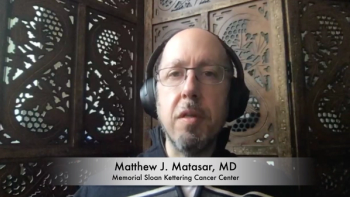
The lymphoma expert discussed how adding copanlisib to rituximab improved progression-free survival, while demonstrating a manageable safety profile in patients with relapsed indolent non-Hodgkin lymphoma.
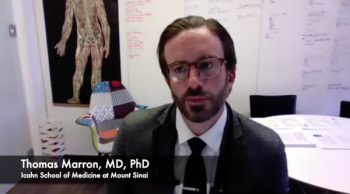
Marron discussed the next steps to a trial of PGV-001, specifically centered around determining the immunogenicity of vaccinated patients against their antigens.

The lymphoma expert offered highlights from the meeting, with hopes that more treatment options will be available for patients with lymphoma.

CancerNetwork® spoke with Abdulraheem Yacoub, MD, during the American Association for Cancer Research Annual Meeting 2021 to discuss how predictors of response to therapy may be just as important as the development of new therapies for advancing outcomes in myelofibrosis and myeloproliferative neoplasms.
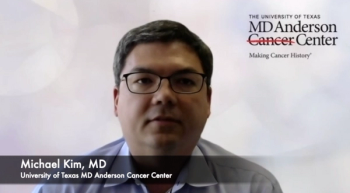
Kim detailed the specifics of his research from the American Association for Cancer Research Annual Meeting 2021 focusing on novel therapies to target mutations and upstream or downstream pathways.
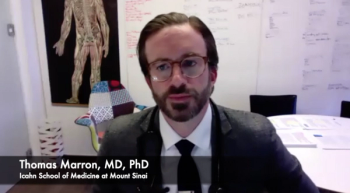
Marron detailed the research process for a phase 1 trial of PGV-001 presented virtually at the American Association for Cancer Research Annual Meeting 2021.

CancerNetwork® spoke with Vivek Subbiah, MD, during the virtual American Association for Cancer Research Annual Meeting 2021 to discuss the most important data to come out of the meeting regarding therapy for tumors harboring KRAS mutations.

Twenty percent of patients with resectable hepatocellular carcinoma experienced significant tumor necrosis when treated with neoadjuvant cemiplimab-rwlc, according to data from a phase 2a open label.

Patients with EGFR T790M-positive non–small cell lung cancer who progressed on prior treatment experienced a clinically meaningful efficacy when treated with D-0316.

A promising objective response rate and a tolerable safety profile were observed with telisotuzumab vedotin monotherapy to treat patients with previously treated c-Met–positive advanced non–small cell lung cancer.
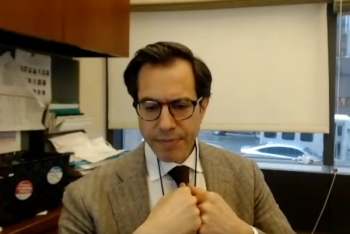
CancerNetwork® spoke with Matthew D. Galsky, MD, during the American Association for Cancer Research Annual Meeting 2021 to discuss leading data to come out of the meeting and what it means for the future of cancer systemic therapy.

Patients with germline and/or homozygous tumor DNA damage response alterations among male patients with heavily pretreated metastatic castration-resistant prostate cancer were most likely to respond to treatment with the PARP inhibitor talazoparib.

In a phase 1 study of the innate cell engager AFM13, all 4 patients with CD30-positive, relapsed/refractory Hodgkin lymphoma treated with the therapy achieved at least a partial response.

The majority of independently adjudicated interstitial lung disease cases associated with the antibody-drug conjugate were low grade and occurred within the first 12 months of treatment.

A durable clinical benefit was seen from the dual inhibition of the MAPK pathway using BRAF and MEK inhibitors dabrafenib and trametinib, respectively, to treat patients with BRAF V600E mutant low- and high-grade glioma.

The clinical benefit rate of the neratinib plus fulvestrant combination treatment did not meet the predefined efficacy threshold, but was active in heavily pretreated patients with estrogen receptor-positive, metastatic breast cancer.

The lymphoma expert discussed how the addition of copanlisib to rituximab may add another treatment option for patients with relapsed indolent B-cell lymphomas.

Twice- versus once-daily dosing of investigational poziotinib for HER2 and EGFR mutations in exon 20 was more efficacious and better tolerated, according to results of the phase 2 ZENITH20 trial presented at the AACR Annual Meeting 2021.

